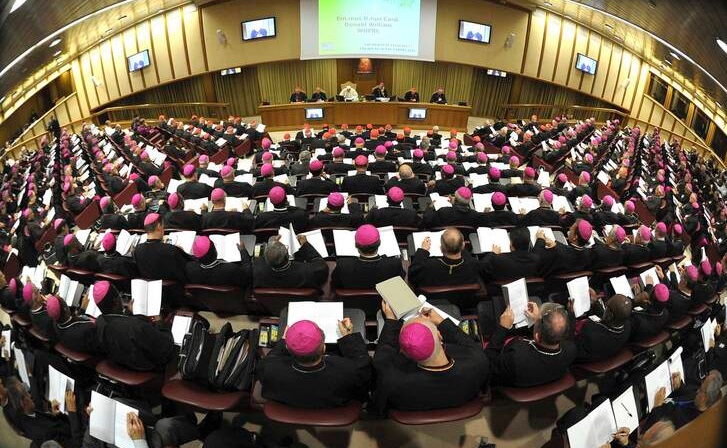Let’s learn to journey together
Almost 11 years ago, I walked past a pair of Swiss guards, their right hands raised in salute, into the Synod Hall at the Vatican and sat down.
Oct 13, 2023

By Sebastian Gomes
Almost 11 years ago, I walked past a pair of Swiss guards, their right hands raised in salute, into the Synod Hall at the Vatican and sat down. It was the first time ever that a young, lay journalist was allowed inside a synod of bishops to help tell the story.
It was the opening of the synod on “the new evangelisation,” convoked and presided over by Pope Benedict XVI. It turned out to be his last synod as Pope; he resigned a few months later in February 2013.
That October 2012 changed my life. I was just starting my career in Catholic media, working alongside Thomas Rosica, CSB, who had been appointed by the Holy See Press Office as the English-language media attaché. Effectively, he was charged with disseminating official information about the synod to the English-speaking media.
My role was quasi-official: I was assisting Fr Rosica in his work with the media and producing short video interviews with the synod delegates. I would approach them during the coffee breaks and ask them to say a few words about their interventions or about the themes that were emerging in the synod. Most delegates were happy to share a few thoughts and the experiences of their local Churches.
What I remember most about that synod — a synod which did not include Cardinal Jorge Bergoglio of Buenos Aires—is the organic shift in tone that took place among the participants inside. Let me explain: In the first week of the synod, bishops from the Global North sounded the alarm about the decline of faith in Europe and the dangers of hyper-secularisation pulling people away from church. But as the sessions rolled on and we heard from bishops from the Global South, the dire situation of Europe began to melt into a broader survey of Catholicism, replete with totally different and complex pastoral challenges. Bishops shared remarkable stories of faith, perseverance and hope in their local communities.
The result of this shift turned the bishops’ focus inward — in a prayerful, reflective way — to their own personal failings regarding evangelisation. It became less about what was happening “out there in the world” and more about what was happening — or not happening — in the Church. They began to speak with deep simplicity and humility.
In a little known but powerful pastoral letter addressed to “the people of God” at the end of that synod, the bishops wrote, “With humility, we must recognise that the poverty and weaknesses of Jesus’ disciples, especially of his ministers, weigh on the credibility of the mission.” They acknowledged that a new evangelisation had to begin with their own personal conversion. “If this renewal were up to us,” they concluded, “there would be serious reasons to doubt. But, conversion in the Church, just like evangelisation, does not come about primarily through us, but rather through the Spirit of the Lord.”
Anyone who has attended a synod of bishops will tell you that it’s more about the journey than the destination. And if you’ve been following the Synod on Synodality, you know that synod literally means to “journey.” It’s about learning to journey together. I don’t know what will happen this October 2023. But I do know that most people inside the synod hall will be changed by it, perhaps in unexpected ways. --America







Total Comments:0